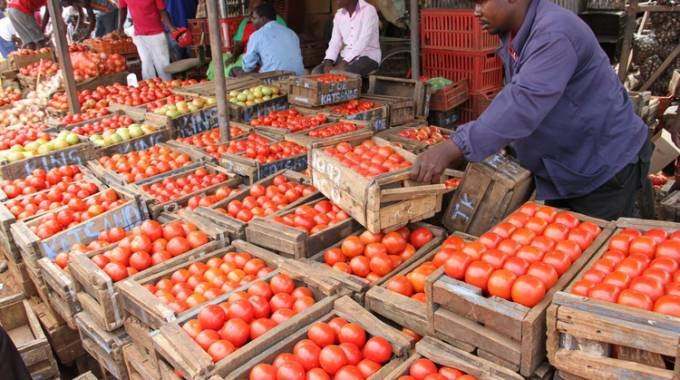Traditional grains become fashionable for communal farmers

Conrad Mupesa
Mashonaland West Bureau
GOVERNMENT’S calls for the country to include traditional grains in their cropping options and boost food security have fallen on fertile ground in Mashonaland West province with many communal farmers, even in traditional maize strongholds, now growing crops like sorghum, millet and rapoko.
While Zimbabwe has been registering increased maize and wheat production with the 2022 winter wheat production making Zimbabwe, the only African flour-sufficient nation, there has been an increased uptake of traditional grains like sorghum, millet and rapoko.
At least 300 farmers from Mhangura’s Ward 2 have since started producing sorghum, as a way of enhancing food security in the face of growing climate change problems while targeting sell the crop to generate an income as well.
As part of the Second Republic’s continuous efforts to ring-fence farmers against climate change by introducing the drought-resistant traditional grains, Zimbabwe also them to the basket of inputs that communal farmers receive under Pfumvunza/Intwasa.
One farmer, Mr Evans Jokonya who ventured into sorghum farming in 2020 after being contracted by a local beer manufacturer, has managed to purchase various ox-drawn farming implements.
“I started with half a hectare in 2020 and managed three tonnes and have gradually been increasing my hectarage. In the 2022/23 season, I managed one and a half hectares,” he said.
Another farmer, Mr Rabson Tererai who has been successfully producing sorghum at his six-hectare plot, said the crop had uplifted his life.
“I have three hectares under the crop and am expecting at least 12 tonnes. Sorghum is a drought-resistant crop that doesn’t require a lot of rain and fertilisers,” he said before urging fellow farmers to adopt the crop.
Zimbabwe National Farmers Union (ZNFU) trustee, Mrs Dorothy Nyahondo who is a commercial farmer said the President’s call for farmers to take up traditional grains should be taken seriously.
“Farmers should beat climate change by taking production of traditional grains seriously. As a nation, we received nearly 1 000 millimetres of rain this past season but it was poorly distributed. In our surveys, we are noticing that those who adopted traditional grains are headed for a bumper harvest,” she said.
Commercial farmers in the area have also adopted the traditional grains seriously, putting at least 2 000 hectares under the crop on top of the communal and small-scale farmers’ contribution of 700 hectares.
Makonde Agricultural and Recovery Development Advisory Services (ARDAS) officer, Ms Moreblessing Chiwawa challenged farmers to rotate fields after three seasons to conserve soil texture and fertility.
And agronomist and northern region manager with seed-producing company K2, whose entity has so far managed to produce the only hybridised sorghum seed in the country, Mr Searchmore Chiweshe said his company was rallying behind the President’s call.
He said the company’s innovation, in line with the Second Republic’s call for corporates and individuals to help build Zimbabwe, had developed the short-term hybrid seed that would produce more yields and resist bird attack.








Comments